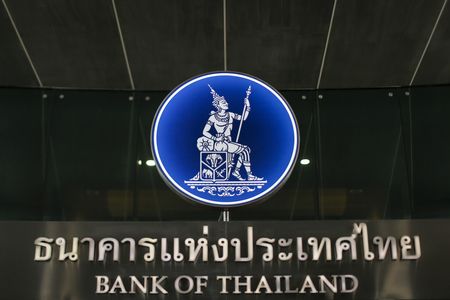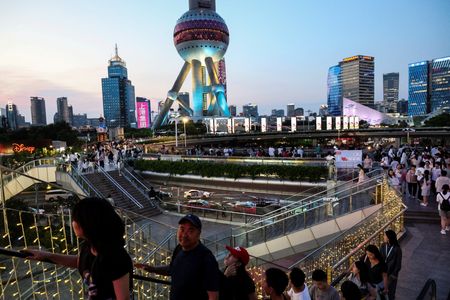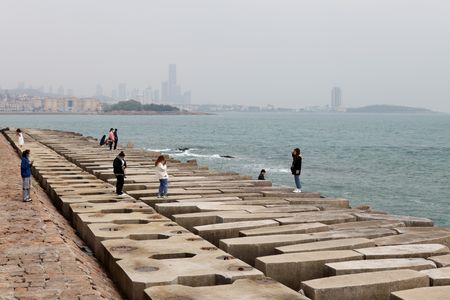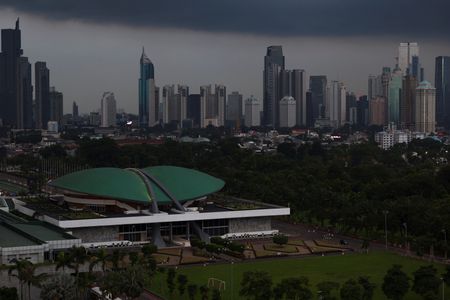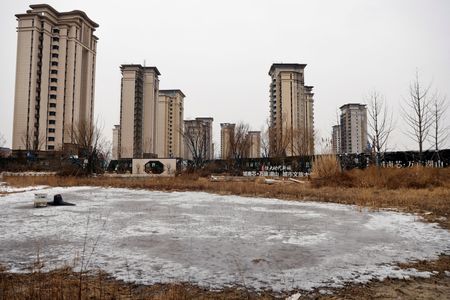By Kitiphong Thaichareon and Orathai Sriring
BANGKOK (Reuters) – Thailand’s central bank is considering a tax on gold trading as well as other measures to stabilise the soaring baht, its governor said on Tuesday, as the currency hit a four-year high driven by a weaker dollar as well as surging gold exports to neighbouring Cambodia.
The baht was trading at 31.718 per dollar on Tuesday, higher than the 34-35 baht range considered appropriate by business groups in Southeast Asia’s second largest economy.
Sethaput Suthiwartnarueput, who finishes his term as governor in 14 days, told reporters that there have been discussions about a tax on gold trading, support for gold trading in U.S. dollars and other measures.
“One of the measures discussed was taxation, but there are other avenues that have also been discussed,” he told reporters. “For example, as you know, Thais trade a lot in gold, so we want to encourage gold trading in dollars rather than baht.”
Discussions are ongoing and no decision had been reached, he added.
In the January to July period, Thailand’s gold shipments surged 82% year-on-year to $7.6 billion, with unusually large export volumes worth $2.1 billion to Cambodia alone.
Sethaput also warned that structural fixes were needed to resolve a surge in private debt and reverse the decline in Thailand’s fiscal position.
“Fiscal ammunition is limited and there is risk of a ratings downgrade if the fiscal position does not improve,” he said, adding that spending was higher than revenue.
The Bank of Thailand has cut rates four times since late last year amid a slowdown in economic growth. The cuts were intended to ease financial conditions rather than serve as a short-term stimulus, he said.
The next rate review is on October 8, with some economists expecting a further rate reduction.
Former state-owned bank head Vitai Ratanakorn, seen as an inflation dove who will advocate for rate cuts to support growth, will take over from Sethaput on October 1.
“There are things I’m still worried about and a message for the next governor is don’t forget the long-term and structural issues,” Sethaput said.
Sethaput also ruled out a move into politics after his departure from the central bank.
(Reporting by Orathai Sriring, Kitiphong Thaichareon, Thanadech Staporncharnchai, Chayut Setboonsarng; Editing by John Mair and David Stanway)

